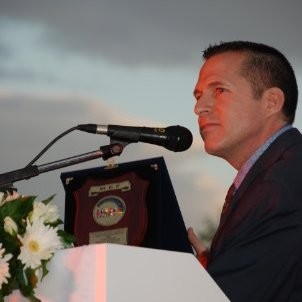
An international life
John RC Potter reflects on a life in international education and on the challenges facing today’s students seen from the perspective of a university counsellor.
Lucky break
How do you become a College Counsellor in an international school? In my case it was largely serendipity. I had been working in international schools for many years in Indonesia, Turkey, the UAE and Israel, rising through the ranks first into an entry-level leadership post, then becoming a divisional principal, and later a whole school (K-12) principal. Subsequently morphing into a counsellor at the end of this journey was largely a matter of chance which opened up a new perspective on international education for me..
It was when I was Director of an international school in Izmir that I volunteered to help the newly-hired whole school counsellor who had the onerous task of being responsible for both pastoral and university counselling. I said that I would assist students with their university applications. It was a small group of students, and manageable, even with a hectic role as a whole school director.
The fact is that I really enjoyed it! After going the rounds as a teacher and school leader, I decided that I wanted to be a college or university counsellor in the last phase of my professional career. I wanted to have fewer meetings. I wanted to be back working directly with the students.
New opportunity
After visiting my former employer and a school in Istanbul, where I had been a principal I applied to become the college counsellor this time, working with international and Turkish students. As the proverbial saying cautions us: be careful of what you wish for! I got the job! There I first discovered a few truths about college counselling, some of which are particular to Turkeyand some that are no doubt global in nature. But working as a college counsellor provided fresh insight which may resonate with teachers not only in Turkey but also elsewhere involving challenges as well as opportunities for colleagues in international schools.
The coaching culture
 Firstly there is in Turkey what can be described as ‘a coaching culture’ whereby parents feel almost obliged to engage individual tuition or ‘coaching’ for their children. A lot of this is associated with preparing students for the almost impossible challenge of the Turkish university entrance. You can understand it – if you can afford it, why wouldn’t you give your child the best possible chance of success? So far as college counselling is concerned this translates to the hire of a personal consultant to assist a family in managing university applications.
Firstly there is in Turkey what can be described as ‘a coaching culture’ whereby parents feel almost obliged to engage individual tuition or ‘coaching’ for their children. A lot of this is associated with preparing students for the almost impossible challenge of the Turkish university entrance. You can understand it – if you can afford it, why wouldn’t you give your child the best possible chance of success? So far as college counselling is concerned this translates to the hire of a personal consultant to assist a family in managing university applications.
The coaching culture in many countries can lead to tensions with the student caught in the middle. Attendance at school can suffer and I think it is true to say that external tuition and counselling at the very least complicates things and can subvert the relationship between the school counsellor, teacher, the student, and the family. In the case of college counselling a student who is working with an external consultant can be caught between two sets of opinions.
On a practical level, it can be difficult to convince students to attend meetings with their university counsellor at school rather than with the consultant and missing these meetings is clearly counter-productive. There is also the tendency on the part of families to assume that when one is paying a large sum for such a service, it must be at least worthwhile, if not superior to what a school provides with no further charge. In some cases, over-optimistic applications can lead to disappointment. To be fair, though, this is not to lay blame on any external consultant, because they are usually as hardworking, responsible, and ethical as their school-based counterparts.
The reality is, however, that too many cooks in the kitchen can spoil the broth!
Tougher for students
 My perspective has evolved over the past decade. What has changed for students in recent years and why the coaching culture remains as strong, if not stronger than ever, is the increasingly competitive nature of university admissions. As a result, students are undertaking more summer study, research, and internship opportunities, and tackling even greater loads of academic preparation (AP, IB as well as studying for local entrance exams). In terms of looking forward to my final few years working abroad as an educator, I have seen the educational landscape forever changed by the COVID-19 pandemic and its aftermath. The world of teaching, leading, and counselling has become more complex and more challenging.
My perspective has evolved over the past decade. What has changed for students in recent years and why the coaching culture remains as strong, if not stronger than ever, is the increasingly competitive nature of university admissions. As a result, students are undertaking more summer study, research, and internship opportunities, and tackling even greater loads of academic preparation (AP, IB as well as studying for local entrance exams). In terms of looking forward to my final few years working abroad as an educator, I have seen the educational landscape forever changed by the COVID-19 pandemic and its aftermath. The world of teaching, leading, and counselling has become more complex and more challenging.
Looking to the future
So where does this leave us? I am not sure what the future holds for teachers in general and counsellors in particular. It is difficult to take on the coaching culture as an individual – but teachers and counsellors who place the interests of their students as their top priority, work hard to win their trust and build a relationship with their families will always be at an advantage.
I wish my professional counterparts in their various and critically important roles all the best and much success in marching into the future with a manageable workload and a decent home-work balance!
 John RC Potter is an international educator from Canada, living in Istanbul. He has experienced a revolution (Indonesia), air strikes (Israel), earthquakes (Turkey), boredom (UAE), and blinding snow blizzards (Canada).
John RC Potter is an international educator from Canada, living in Istanbul. He has experienced a revolution (Indonesia), air strikes (Israel), earthquakes (Turkey), boredom (UAE), and blinding snow blizzards (Canada).
He is also a successful published writer. Click on the links below to learn more about his work:
Website: https://johnrcpotterauthor.com Twitter: https://twitter.com/JohnRCPotter
Instagram: John RC Potter (@jp_ist)
FEATURE IMAGE: by Moondance from Pixabay
Support images: by https://pixabay.com/illustrations/-5492812/ & Mahmud Shoeb from Pixabay

